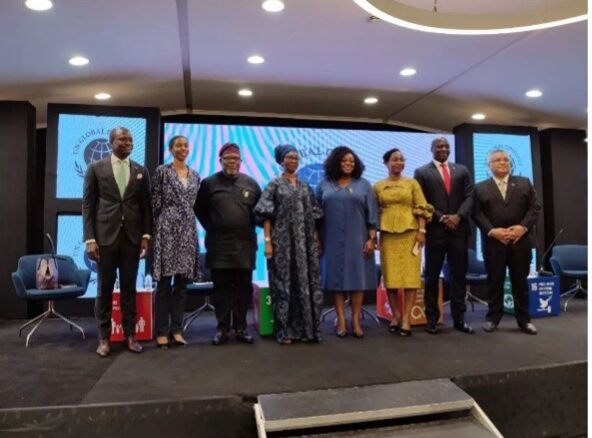Our opinion on the following key issues.
- State of the nation on diversity and inclusivity – how are we doing?
We are not doing very well from below statistics:
2013 Gender in Nigeria Report, majority of Nigerian women are unable to add extra to family earnings.
In politics- the current 8th National Assembly- 7 female out of 109 senators, 12 females out of 360 in the House of reps. 18 females out of 990 in the State houses of assembly members. 143 females out of 8810 Local Government councilors and 11 females out of 774 Local Government Chairmen.
Females continue to be the underclass, after people living with disabilities (who are not even on the spectrum.)
In education, there is gender inequality in the primary and secondary levels of education and this is keeping in mind that Nigeria has more out of school children than any other nation on the globe.
About 54 Million Females in Nigeria dwell in and are employed in the country side regions where they offer 60-79% of the country’s workforce.
The non-agrarian informal sector engages 25% of the female workforce who are engaged customarily in petty trading and home-centered processing and manufacturing. Women’s poor access to inexpensive credit, materials, technical assistance and facilities inhibits them from growing their businesses.
Women have a 67% fewer chance compared to males of getting wage occupations.
Source- British Council Gender in Nigeria Report and 2016 Academic Journal of Interdisciplinary studies.
2. What does the diversity and inclusivity agenda look like in your organizations?
First of all why is this even desirable? Evidence/ research shows that companies with gender, ethnic and racial diversity are at least 15% more likely to experience above –average returns on their profits.
A diverse and inclusive organization with an agenda to progress D&I is one where the environment is conducive, and where there are multiple initiatives, practices and measures around not only ensuring the right policies are in place but also ensuring that there is dynamic implementation of these policies.
Role modelling and leadership from the top is present, and there is a recognized connection between innovation and diversity and inclusion.
There is good communication flow and employee engagement.
3. How have organizations in your experience delivered business performance benefits through diversity and inclusivity?
By the way of experience, I have observed that diversity and inclusion drives a high performance culture where everyone is given equal opportunity to progress and is rewarded. Diversity has always created an environment where employees, given an atmosphere where they can be their authentic self are likely to demonstrate their full value, are encouraged to be the best they can be regardless of gender, age, disability, or nationality. According to a research by McKinsey & Co, businesses with a healthy balance of men and women are 15% more likely to outperform their competitors, while those with employees from a good mix of ethnic backgrounds are 35% more likely. Diversity and inclusion is vital because it improves productivity and makes bottom-line business sense.
They are able to attract and retain top-talent.
4. Is there a gender pay gap in our markets?
Many times over in my professional experience, I have seen gender pay disparity happen in workplaces. The idea behind equal pay for equal work is synonymous with labour rights which suggests that individuals in the same workplace, doing the same job should be given equal pay. Studies show that this gender pay gap exists because of a combination of economic, socio-cultural and educational factors. For instance, from a socio-cultural perspective women’s work is traditionally more undervalued. From an economic perspective it starts from the industrial level where fields that attract more women (for example education, healthcare, nonprofits) traditionally pay less income.
5. Is there a gender engagement gap in our markets?
Yes there is, and it is fostered by a lack of Women in Executive Leadership positions and on boards. Women make up 52% of the economy and only 5% of CEOs in the private sector are women with a mere 11.7% on company boards (Gender in Nigeria)
It is commonly believed that employee engagement increases as employees advance within a company. As they take on more responsibility and have more direct interaction with senior executives, employees tend to develop a greater emotional commitment to the organization and its goals. But researchers have found companies with lower overall engagement scores tend to have a sizable engagement gender gap among employees in senior positions.
Women still lag behind men in advancement and pay, and these trends likely contribute to the gender gap in engagement at the senior level. High employee engagement benefits companies financially as well as culturally, turning organizations into workplaces that draw talented candidates who are productive, effective and make positive contributions.
6. Where are organizations struggling in diversity and inclusion, across the recruitment, development and engagement spaces?
When it comes to diversity and inclusion, organizations often regard business fundamentals as optional. The reality is that most organizations are only beginning to apply rigorous discipline to their people programs, including their diversity and inclusion initiatives. This is especially true when it comes to measurement, and the void is compounded by the fact that many organizations are unsure of how to measure diversity and inclusion results. An organization’s ability to assess its current state and measure progress is a business basic. In order for senior leaders to fully champion diversity and inclusion, they must have the ability and opportunity to view the diversity and inclusion imperative through the familiar lens of the business fundamentals.



